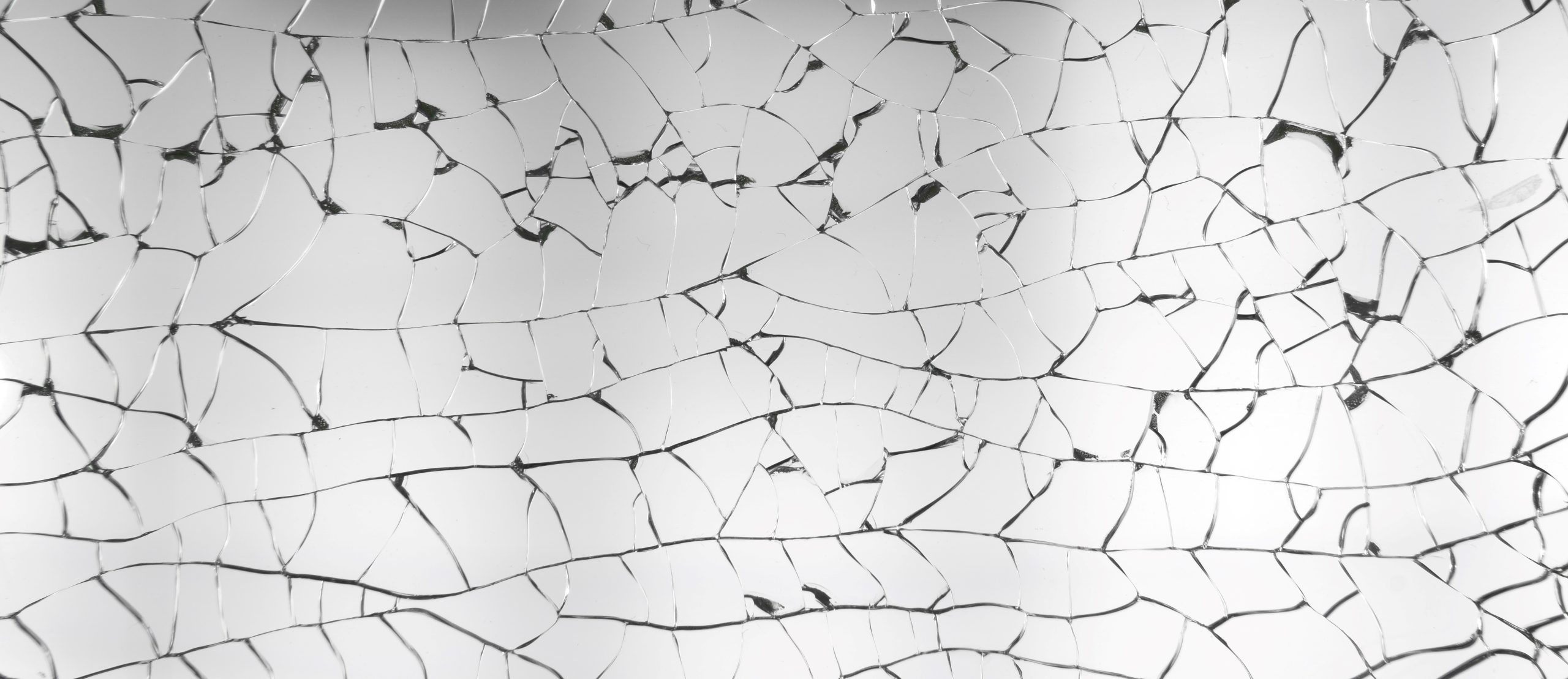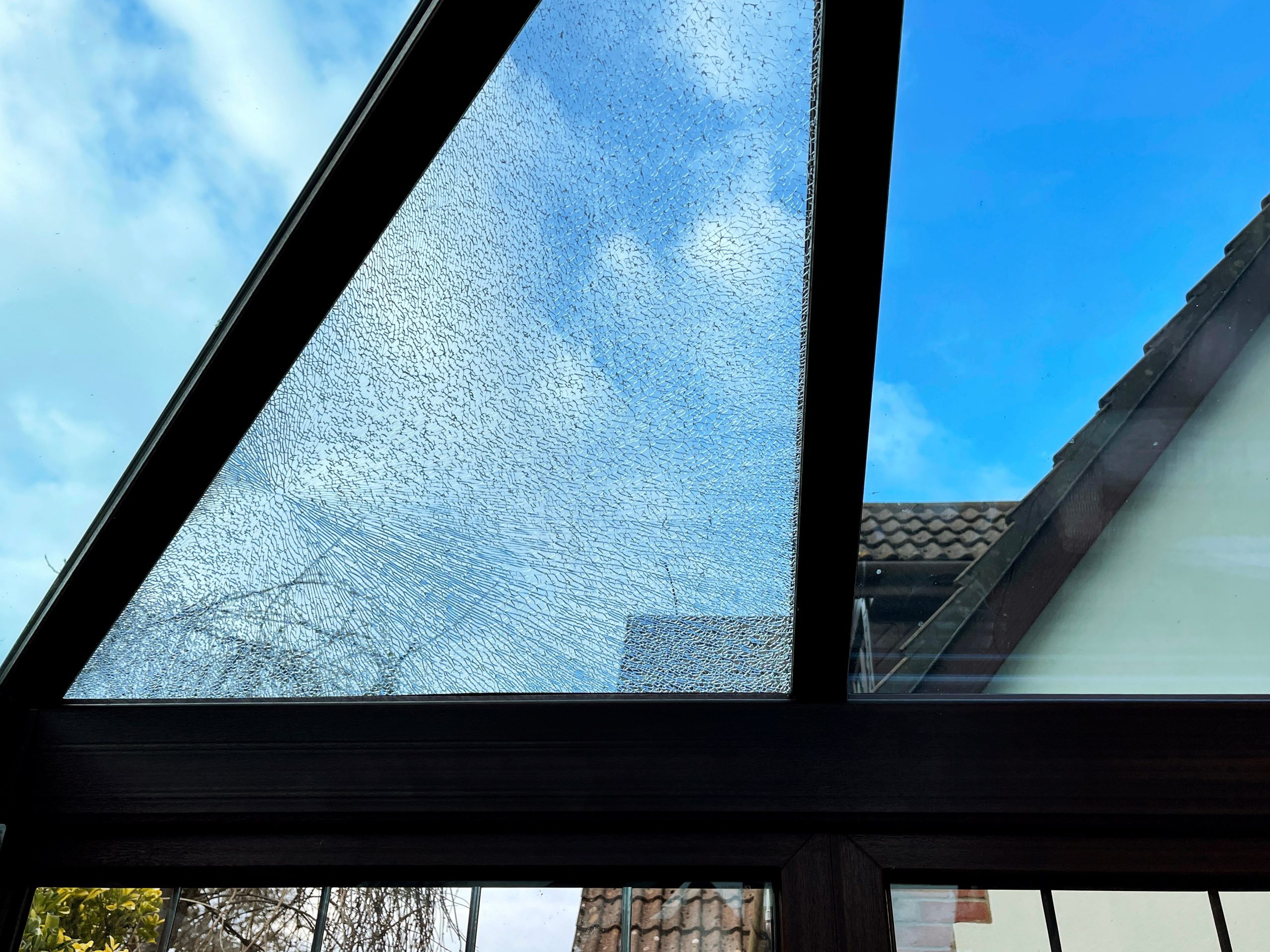
Toughened glass, also known as tempered glass, is a crucial component in modern glazing solutions, offering exceptional strength, safety, and durability. At Andrew Wright Glass, based in Irvine, Ayrshire, we manufacture and supply high-quality toughened glass units for a wide range of applications. In this comprehensive guide, we answer the most frequently asked questions about toughened glass, ensuring you have all the information you need to make an informed decision.
What is Toughened Glass?
Toughened glass is a safety glass that has undergone a controlled thermal treatment to increase its strength. It is four to six times stronger than standard float glass and is designed to shatter into small, blunt fragments instead of sharp shards when broken, reducing the risk of injury.
Not only this, toughened glass is one of the safest glazing options available. As it breaks, crumbling into small, less hazardous pieces, this makes it ideal for applications where safety is a priority, such as windows, doors, shower screens, and balustrades.
Toughened glass is created through a process of heat treatment and rapid cooling. The glass is heated to approximately 620°C and then cooled quickly using high-pressure air jets. This process induces internal tension and external compression, significantly increasing its strength and impact resistance.
Frequently Asked Questions About Toughened Glass:
Can Toughened Glass Be Recycled?
Yes, toughened glass can be recycled, but the process is more complex than standard glass. At Andrew Wright Glass, we offer a free recycling scheme for old glass units.
How Much Does Toughened Glass Cost?
The price varies based on size, thickness, and specifications. Contact Andrew Wright Glass in Irvine, Ayrshire for a free quote tailored to your needs.
Why Does Toughened Glass Shatter?
Toughened glass shatters due to excessive force, temperature fluctuations, or impurities in the glass. Unlike standard glass, it disintegrates into small, pebble-like fragments to reduce the risk of serious injury.
How Thick is Toughened Glass?
Toughened glass is available in various thicknesses, typically ranging from 4mm to 19mm, depending on its intended use. Thicker glass provides greater strength and impact resistance.
Can Toughened Glass Be Cut or Drilled?
No, toughened glass cannot be cut, drilled, or modified after the toughening process. Any shaping, cutting, or drilling must be completed before the glass undergoes heat treatment.
Can Toughened Glass Break on Its Own?
Yes, toughened glass can experience spontaneous breakage, though this is rare. Causes include nickel sulphide inclusions, edge damage, or prolonged thermal stress. At Andrew Wright Glass, we conduct BSI quality control checks to ensure all our toughened glass units meet stringent safety standards.
Are There Specific Building Regulations in Scotland for Toughened Glass?
Yes, under Scottish Building Regulations, toughened or laminated safety glass is required in critical areas, including:
- Glazing in or near doors (within 300mm of the door edge and up to 1500mm high).
- Low-level glazing (below 800mm from floor level).
- Glazing in bathrooms and stairwells where safety is a concern.
Regulations ensure compliance with BS 6206 and BS EN 12600 safety standards.
How Does Toughened Glass Improve Energy Efficiency?
Toughened glass itself does not provide insulation, but when used in double glazing units, it enhances thermal performance by:
- Reducing heat loss and maintaining indoor temperature.
- Lowering energy costs by improving window efficiency.
- Minimising condensation due to improved insulation properties.
Low-E toughened glass can further enhance energy efficiency by reflecting heat back into the building.
Is Toughened Glass More Expensive than Standard Glass?
Yes, toughened glass is generally more expensive than standard glass due to the extra processing involved. However, its strength, durability, and safety benefits often make it a worthwhile investment, particularly in areas where safety regulations require it.
What is the Best Type of Toughened Glass?
The best toughened glass depends on the application. Options include:
-
Clear toughened glass – Ideal for general glazing.
-
Low-iron toughened glass – Provides enhanced clarity.
-
Laminated toughened glass – Combines the strength of toughened glass with an interlayer for added security.
Toughened Glass - What's the Difference?
Toughened Glass vs Normal Glass
- Strength: Toughened glass is up to six times stronger.
- Safety: Breaks into small, harmless fragments.
- Heat Resistance: Can withstand higher temperatures.
Toughened Glass vs Laminated Glass
-
Toughened glass is stronger and breaks into small, safe fragments.
-
Laminated glass contains a plastic interlayer that holds the glass together upon impact, providing better security and noise reduction.
Toughened vs Tempered Glass
These terms refer to the same type of glass. ‘Tempered glass’ is commonly used in North America, while ‘toughened glass’ is the preferred term in the UK.
Toughened vs Polycarbonate
Polycarbonate is lightweight and impact-resistant but can scratch more easily than toughened glass.
Toughened vs Horticultural Glass
-
Toughened vs Polycarbonate: Polycarbonate is lightweight and impact-resistant but can scratch more easily than toughened glass.

Where Can Toughened Glass Be Used?
Windows and doors
Toughened glass offers superior impact resistance and increased safety, making it the best choice for entryways and large windows. It meets building regulations for safety and ensures better durability against external forces.
Tabletops (dining, coffee, office desks)
-
Toughened glass is resistant to heat and scratches, making it ideal for surfaces that undergo frequent use and potential spills.
Staircases and balustrades
Toughened glass ensures safety in high-traffic areas while maintaining a sleek, modern aesthetic. It is also designed to withstand significant pressure, reducing the risk of damage.
Greenhouses
Unlike standard horticultural glass, toughened glass is highly resistant to strong winds and accidental impacts, preventing dangerous shattering.
Glass partitions and shower screens
Toughened glass is the safest option due to its resistance to breakage and its ability to maintain structural integrity in environments with constant moisture and temperature changes.
Toughened glass is a crucial component in modern glazing solutions, offering exceptional safety, durability, and versatility. Whether you need toughened glass for windows, doors, staircases, or furniture, Andrew Wright Glass in Irvine, Ayrshire, is your trusted supplier. As one of the leading toughened glass suppliers near you, we ensure all our products meet rigorous BSI safety standards.
If you’re searching for a glass toughening plant near you or need expert advice on the best glazing solutions, contact us today for a free, no-obligation quote.
